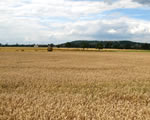 Go to main content
Go to main content
Archive Website of the UK government
Please note that this website has a UK government accesskeys system.
Main menu
Page menu
Home and community

Keeping safe at home in hot weather

Hot weather can cause heat exhaustion in people and animals. Also, bacteria on food and rubbish develop more quickly in the heat. Find out how to stay safe around the home in hot weather, including keeping cool and taking extra care with food and waste.
Be prepared for high temperatures
The Met Office issues ‘heat-health watch’ warnings when there’s a risk of high temperatures in England and Wales for more than two days in a row. These warnings help health services and members of the public prepare for health problems caused by hot weather, like heat exhaustion and heatstroke.
Listen to your local weather forecast so you know when hot weather is predicted. You can also check the Met Office website for the latest heat-health watch warnings.
Keep cool during hot weather
When it's hot, you can keep cool and reduce the risk of heat exhaustion by:
- stocking up on supplies like medicines, food and non-alcoholic drinks, so you won’t have to go out in the heat
- organising your day to avoid being outside during the hottest time (11.00 am to 3.00 pm), if possible
- doing strenuous outdoor activities, like DIY or gardening, during cooler parts of the day, like early morning
- taking cold showers or baths and splashing yourself often with cold water
- drinking plenty of fluids, like juice or water – avoid coffee and alcohol
- if you have to go out, wearing a hat and light, loose-fitting clothing, taking plenty of water with you and keeping to the shade
Older people and children are particularly at risk from heat exhaustion and heatstroke and will need extra attention. For information about spotting the signs of heat exhaustion, heatstroke and dehydration, visit the NHS Choices website.
Keep your house cool
Stay inside the coolest rooms in your house as much as possible. These are probably the rooms that get little sun during the day. To help keep all rooms in your house cool, you can:
- close pale-coloured curtains – closing dark curtains and metal blinds can make rooms hotter
- keep windows closed when it’s hotter outside than inside, but open them if the room gets too hot
- open windows at night when the air is cooler – but close ground floor windows when you leave the house or go to bed
Take extra care with food
When it’s hot, bacteria on food can multiply very quickly, which increases the risk of food poisoning. It’s important to make sure food is:
- kept in cooler bags when taking it home from the supermarket or out for a picnic
- put in the fridge as soon as you get home - the temperature of the fridge should be between 0 and 5 degrees Celsius
- kept out of the sun
- out of the fridge for the shortest time possible – no more than a couple of hours
See the NHS Choices website for more information about how to avoid food poisoning and advice on barbecuing food safely.
Bins and waste
Bins and waste can attract flies and maggots and start to smell in the heat. Make sure you:
- move bins out of direct sunlight and keep their lids closed
- double bag food waste and nappies and squeeze the air out of the top of the bags before you tie them
- clean bins with disinfectant after they have been emptied – pour boiling water over them to kill any maggots
- recycle as much as possible to reduce waste
For more information about bin and waste collection and recycling, contact your local council by following the links below.
See ‘Fly-tipping - what you can do’ if you are worried about waste that has been dumped in your neighbourhood.
Looking after pets
Your pets and other animals can suffer heatstroke in hot weather if they don’t keep cool. Never leave animals inside a car on a hot day and make sure they have:
- plenty of clean, fresh water to drink
- a cool and shady place to rest
It’s also important to cover pet food dishes to prevent flies laying eggs on the food.
Contact a vet if you are worried that an animal is suffering from heatstroke. More information about looking after dogs in hot weather is on the Royal Society for the Prevention of Cruelty to Animals (RSPCA) website.
Fire safety in hot weather
During hot and dry weather, avoid bonfires and be extra careful with barbecues. Dry ground in the summer increases the risk of fire. See ‘Fire safety - barbecues, camping and the outdoors’ for advice.
 Facebook
Facebook Twitter
Twitter StumbleUpon
StumbleUpon Delicious
Delicious Reddit
Reddit
